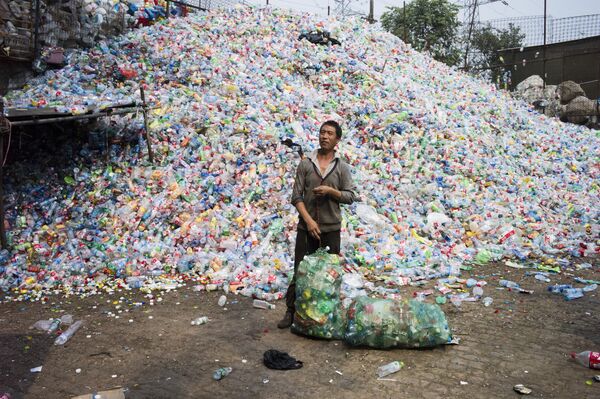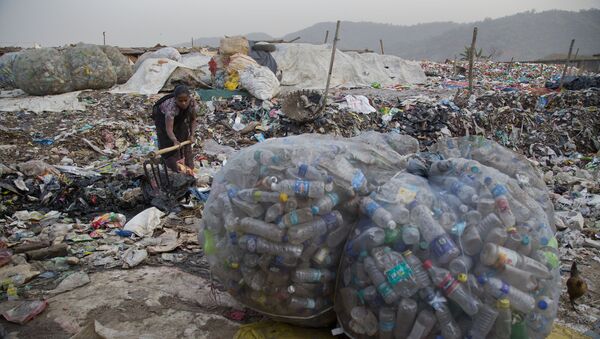The scientists believe the development will also help reduce the harmful emissions caused by the production of polymers and stabilise the environmental situation that has developed around garbage with long degradation time, the university's press service reported.

According to the PRUE specialists, the main achievement of their research is the creation of a new bitumen-polymer composition with high adhesion and elasticity characteristics and increased resistance to various weather conditions. It can be used for the production of roadbed material, paving slabs, and auxiliary elements.
“The resulting material is very strong. We tested bitumen binders for asphalt concrete, specifically, micro- and ultra-dispersed magnetic and metallic fillers. Moreover, we were able to determine the optimum ratio of various components in the bitumen binder to ensure efficient absorption of microwave electromagnetic radiation and the creation of self-healing asphalt concrete road surfaces”, Anatoly Olkhov, lead researcher at the Laboratory of Advanced Composite Materials and Technologies at the Plekhanov Russian University of Economics, said.
According to the expert, the development of composite materials based on recycled waste, such as packaging materials, will reduce the environmental stress that has developed around the high volume of waste that is difficult to recycle and has a long natural degradation time. The new way of using recycled materials will cut emissions from the production of virgin polymers by partially replacing them with secondary raw materials.
“The composition is based on an integrated approach using modern synthetic polymeric materials, dispersed particles in the nanoscale range and natural biopolymers”, Olkhov said.
The specialists noted that composite materials based on secondary synthetic polymers modified with natural biopolymers can be successfully used in landscape design to produce geogrids, geomats, and geonets. The scientists have also created a biopolymer geotextile with an accelerated herbaceous germination function.
In the future, the authors of the research plan to implement their ideas step by step in road construction and other areas of life.
The study was carried out as part of the research project “Development of recycling technologies of secondary polymeric materials for the production of products for transport construction”.

